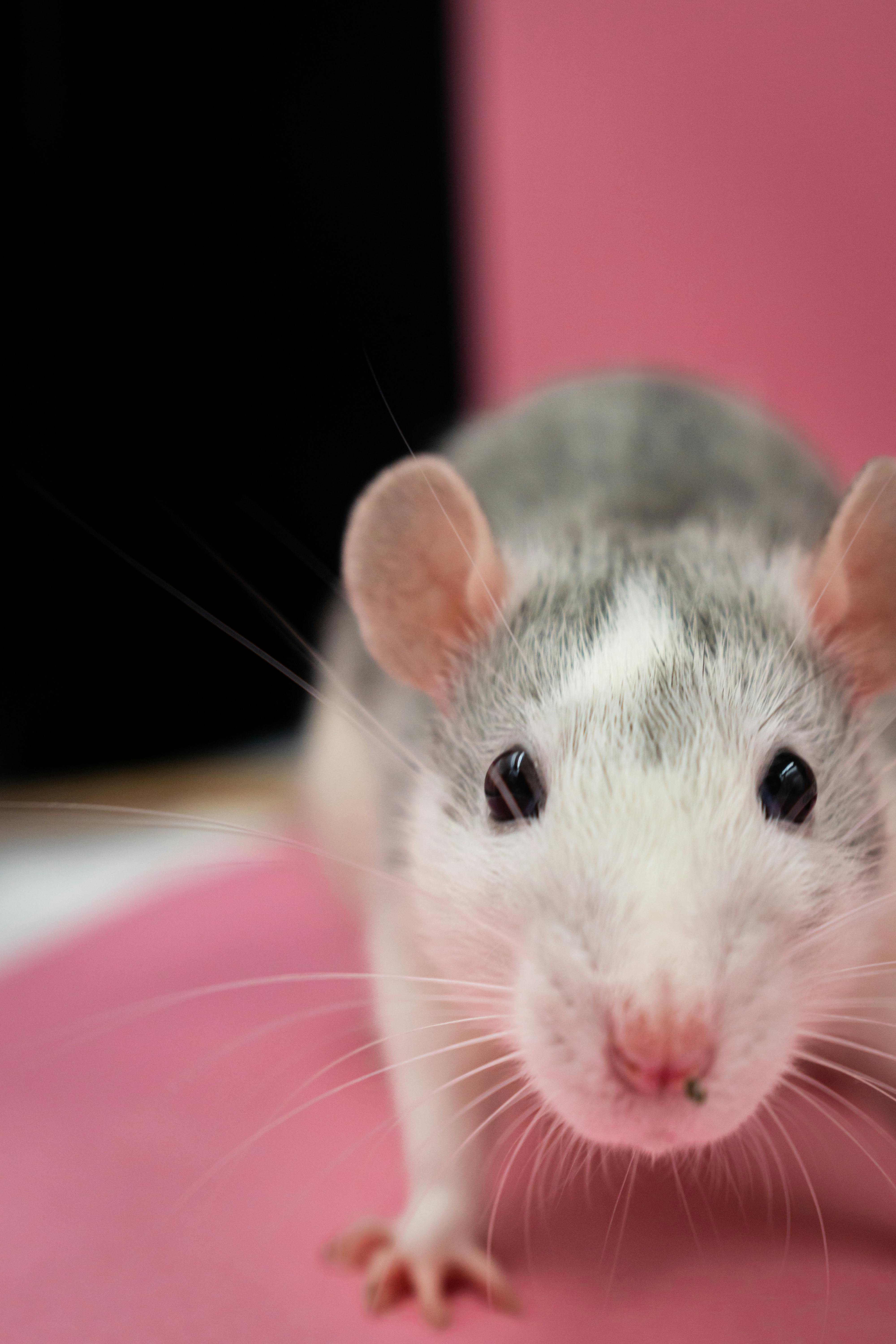Essential Overview of Flemish Rabbit Characteristics
Understanding Flemish Rabbit Size and Weight
The Flemish rabbit is one of the largest among rabbit breeds, typically weighing between 14 to 20 pounds. Adult Flemish giants can reach a length of around 30 inches. This impressive size makes them great companions for those looking for a more substantial pet. Their considerable size also means they require ample space for movement and comfort. In households with children, these large rabbits can be gentle giants, offering plenty of affection and companionship. However, prospective owners should consider their space needs and ensure that they can accommodate a larger rabbit.
Flemish Rabbit Temperament and Personality Traits
Flemish rabbits are known for their friendly and calm disposition, making them excellent pets for families and individuals alike. Their docile nature is complemented by a playful side, often enjoying activities that involve human interaction. This breed typically adapts well to various environments, be it an indoor setup or an outdoor rabbit habitat. As social animals, Flemish rabbits thrive on companionship and enjoy spending time with their caretakers. Understanding their personality traits is vital for nurturing a well-adjusted pet.
Distinct Color Variations of Flemish Rabbits
One of the exciting aspects of the Flemish rabbit breed is its range of colors. Flemish giants can be found in various hues including gray, black, fawn, sandy, and even light gray. Each color variation has its unique appeal, and many owners choose their rabbits based on these striking appearances. The color does not influence the rabbit's personality or care requirements, but it may contribute to the owner’s aesthetic preference. When looking to buy a Flemish rabbit, consider the colors that resonate with you, as they can become a cherished part of your family.
Health Considerations for Flemish Rabbits
Like all pets, Flemish rabbits are susceptible to certain health issues, including obesity, dental problems, and respiratory infections. Prospective owners should be aware of each potential health risk and prioritize preventive care. Regular veterinary check-ups and a proper diet plan tailored for large rabbits are essential. Additionally, monitoring their weight and maintaining a healthy feeding schedule are crucial in keeping a Flemish rabbit healthy. Awareness of common health issues can help in providing a longer and healthier life for your new pet.
Preparing for a Flemish Rabbit in Your Home
Before bringing a Flemish rabbit home, it's important to prepare your living space to ensure it meets the rabbit's needs. A large, safe environment is essential for their exercise and socialization. Indoor owners can opt for spacious cages along with a designated play area, while outdoor enthusiasts can build rabbit-proof fenced spaces. The overall environment should also include hiding spots and places to explore, catering to their natural curiosity. In the preparation phase, consider creating a rabbit-friendly atmosphere that encourages interaction and comfort.
Essential Tips for Buying a Flemish Rabbit
Finding Reputable Flemish Rabbit Breeders
When searching for a Flemish rabbit for sale, it’s imperative to find reputable breeders. Look for individuals who prioritize animal welfare and can provide health certifications for their rabbits. Local breeders or rabbit clubs often give insights into the best practices in breeding and caring for Flemish giants. It's wise to ask questions about the rabbit’s living conditions and diet to gauge the breeder's commitment to high-quality practices. Doing your research can lead you to find healthy, well-raised bunnies.
Understanding Flemish Rabbit Prices
The price of a Flemish rabbit can vary greatly depending on the breeder, color, and generational quality of the rabbit. On average, prices may range from $50 to $300, with some rarer color variations costing more. While it's tempting to find the cheapest option, investing in a well-bred rabbit from a reputable source can save you future veterinary costs and ensure better health and temperament. Understanding the going rates in your area will also help you negotiate and feel secure in your investment.
Adoption Options for Flemish Rabbits
Adopting a Flemish rabbit is a noble choice that provides a loving home to rabbits in need. Many rabbit shelters and humane societies offer Flemish breeds. When considering adoption, be sure to ask about the rabbit's history, health status, and any behavioral concerns. Adopting not only provides a pet but also contributes to the wellbeing of animals needing homes. Moreover, some organizations may offer discounted rates or even free adoptions for rabbits in their care, making this a financially sound option as well.
Choosing the Right Flemish Rabbit for Your Family
Selecting the right Flemish rabbit involves evaluating your personal lifestyle, family dynamics, and the time you have available for care and interaction. Consider how a rabbit will fit into your home environment, especially if you have young children or other pets. Opt for rabbits that demonstrate gentle behavior and openness to socialization. Compatibility is crucial; therefore, take the time to interact with potential rabbits before making your decision to ensure they will thrive in your household.
Common Myths about Buying Flemish Rabbits
Many misconceptions surround the purchase of Flemish rabbits, such as their supposed difficulty in care. However, when understood properly, they can be just as easy to care for as smaller breeds. Misbeliefs may also extend to their dietary needs, exercise requirements, and social interactions. Educating yourself on the real needs of Flemish rabbits can dispel these myths and prepare you for a fulfilling experience with your new pet.

Vital Aspects of Flemish Rabbit Care
Creating Suitable Housing for a Flemish Rabbit
Flemish rabbits require spacious housing that allows them to stretch out and hop freely. An ideal setup includes a large indoor cage or a secure outdoor pen. An exercise area should also be established where the rabbit can safely explore and play. When designing their living space, include bedding options that promote comfort and hygiene. It's essential to routinely clean their area to prevent any health issues associated with poor hygiene. By providing the right housing, you're creating a supportive environment where your Flemish rabbit can thrive.
Feeding Essentials for Flemish Rabbits
A proper diet is crucial for the health of a Flemish rabbit. Their nutritional needs differ from smaller breeds due to their size and energy requirements. A balanced diet should consist of hay, fresh vegetables, and specially formulated rabbit pellets. It's important to establish a rabbit feeding schedule that aligns with their needs, ensuring they're getting enough fiber for digestion and overall health. Be cautious of overfeeding treats, as Flemish rabbits can be prone to obesity.
Grooming Needs for Flemish Rabbits
Regular grooming not only helps maintain a Flemish rabbit’s health but also strengthens the bond between owner and pet. Their large size means they require thorough grooming to keep their coat clean and free from mats. Invest in suitable rabbit grooming tools like brushes and nail clippers. Depending on the season, they may also shed more fur, increasing the need for frequent grooming sessions. Understanding the grooming basics is essential for keeping your Flemish rabbit looking and feeling their best.
Training Techniques for Flemish Rabbits
Training a Flemish rabbit can be a rewarding experience, allowing for better integration into your household. Simple commands such as "come" or "stay" can be taught using positive reinforcement techniques. Start with short, engaging sessions to keep their attention and ensure training is a fun experience. Socialization with other pets and family members should also be included in the training process, helping your rabbit feel comfortable in various situations.
Addressing Health Issues in Flemish Rabbits
Being informed about common health issues can save your Flemish rabbit from serious problems down the line. Regular veterinary check-ups and a good diet can help prevent diseases such as dental issues or obesity. Should you notice changes in behavior or appetite, seek veterinary advice promptly. Understanding the signs of illness and learning basic rabbit healthcare basics can be vital for early detection and treatment, ensuring your rabbit remains healthy and happy.

Engaging Activities for Flemish Rabbits
Enrichment Ideas for Flemish Rabbits
Keeping a Flemish rabbit entertained is essential for their well-being. Engage your rabbit with various enrichment activities including toys, tunnels, and daily interactions. Providing mental and physical stimulation can significantly reduce the risk of behavioral issues. Interactive toys or simple activities like hide-and-seek can also be an enjoyable way to bond, while ensuring they remain active and stimulated.
Socialization with Other Pets
Flemish rabbits often benefit from socializing, not only with humans but also with other pets in the household. If reassuringly supervised, many Flemish rabbits can get along well with cats and dogs. Gentle introductions are key to preventing any unnecessary stress. Remember to monitor all interactions, especially in the early stages, to ensure a calm and safe environment.
Caring for Flemish Rabbits During Shows
For those interested in participating in rabbit shows, ensuring your Flemish rabbit is show-ready involves specific care practices. Regular grooming and a well-maintained diet are crucial for rabbits presented at shows. Understanding the judging criteria can also help in preparing your rabbit for success. Local rabbit clubs often provide resources and training workshops to assist novice show participants in navigating the preparation process.
Building a Routine with Your Flemish Rabbit
Establishing a routine is beneficial in promoting well-being for your Flemish rabbit. Include regular feeding times, grooming intervals, and socialization periods to create a well-structured environment. A consistent schedule helps your rabbit feel secure and can positively impact their behavior. Additionally, regular interaction will facilitate a strong bond between you and your pet, encouraging a happy and healthy life together.
Understanding Flemish Rabbits in Community Settings
Flemish rabbits have become increasingly popular within many communities, often seen in petting zoos or as therapy animals. Their size and gentle temperament make them suitable for various roles. Engaging with local rabbit clubs or Flemish rabbit enthusiast groups can provide insights into best practices and the community aspects of owning such a breed. By participating in events or connecting with other owners, you can enrich your experience with your Flemish rabbit while contributing to broader rabbit welfare.
Its part of generated content. Can i generate another part?


